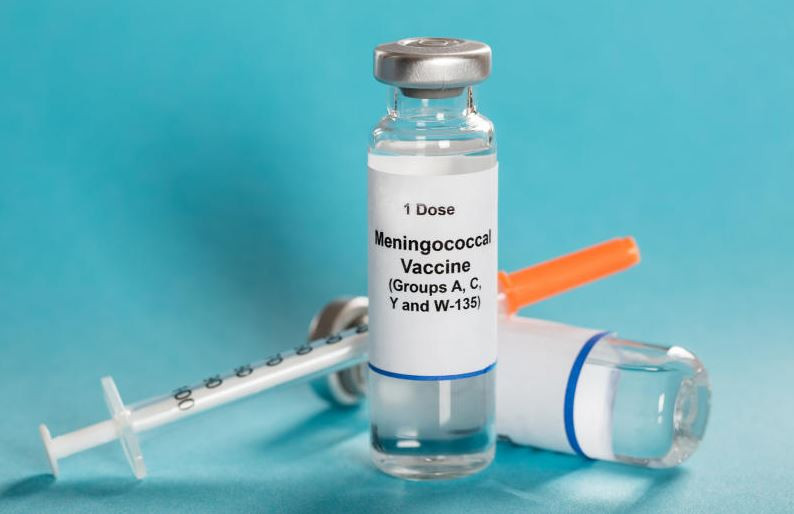
Eight billion people live in parts of the world where meningococcal meningitis is rampant. More than a third of humanity is thus exposed to the risk of infections. About two million people are affected by meningococcal meningitis annually.
The severe forms of the disease are responsible for a high mortality rate, especially among children but also affect all age groups. A fast diagnosis of the severe cases of meningococcal meningitis and early treatments are becoming crucial in the crusade against the disease. The geographical distribution of meningococcal meningitis, throughout the world, has been changing constantly over the years.
Widespread in the past, endemic zones have been reduced due to the efforts by doctors, researchers and scientists to minimise the dangers posed by the disease. In certain zones, the risk of transmission remains moderate. However, in recent years, the increase in infections has occurred. Africa is an endemic zone and Kenya falls in the African meningitis belt, which stretches from West Africa to East Africa.
Majority of the cases fall within the belt where the disease causes deaths every year. The frequency of meningococcal meningitis is increasing in Kenya, but the victims are usually those exposed to the risk for the first attack. Reduced immunity fuels the cases.
Prohibitive treatment
These first attacks are the most dangerous, especially to children and travellers arriving for the first time in a risk zone. It is for this reason that in 2003, Saudi Arabian government issued a circular to all countries demanding that all pilgrims to Mecca must be vaccinated against A,C,Y,W-35 strain that had emerged globally and are now in circulation.
This strain is responsible for many deaths from meningococcal meningitis, even in Kenya. And a large swathe of Africa has been experiencing this particular strain with many cases and deaths reported in different countries in Africa that fall within the belt.
“Meningococcal meningitis is always misdiagnosed and this makes the treatment of the disease complicated and leads to mind boggling prohibitive treatment thus making immunisation the best option,” says Dr. Nicholas Ochieng’, a general medical practitioner based at Kenyatta National Hosipital (KNH).
Dr. Ochieng’ who is also a senior lecturer at Kenya Medical Training College (KMTC) in Nairobi, says it is important to challenge the donors and government agencies, the medical community and stakeholders on health that the increased attention given to HIV/Aids, malaria and tuberculosis, also be given to meningococcal meningitis due to its seriousness.
The disease’s symptoms include swelling of the brain, swelling of the spinal cord, and blood infection thus, making it difficult to detect, recognise and above all diagnose it in the early stages. This is so since the symptoms are similar to those of other common viral illnesses.
Confusion or altered mental health status, headaches, neck stiffness, fever, nausea, vomiting, seizure, coma, neurological deficits, loss of hearing ability, vision loss, cognitive impairment, weakness in limbs, all are associated with viral meningococcal meningitis.
There are also bacterial meningitis pathogens that can cause bloodstream infections that can lead to cold hands and feet, joints and muscles pains, breathing faster than usual, diarrhoea and dark, purple or red rash.
But, unlike other common viral illnesses, the disease moves quickly and can cause death or disability in just a single day, adds Dr. Ochieng’. Studies show that about 10 per cent of victims of meningococcal meningitis end up dying of the disease. Death rates are up to five times higher among teenagers and young’ adults aged 15 to 25 years compared to other age groups.
Of those who survive, one in five is left with serious medical complications like amputation of arms, legs, fingers, toes among other complications.
Other symptoms include haemorrhagic rash. Dr Ochieng says whereas meningococcal meningitis poses a serious threat to the fragile public health system, in the face of this threat from invasive meningococcal meningitis disease, scientists have led concerted efforts to tackle this condition and researchers have come up with remedy for the disease.
Bacterial meningitis can kill one in six within days. Doctors say delayed treatment increases the risk of longer-term brain damage.
The availability of more advanced and superior medicine/drugs and vaccines to treat the condition prevents deaths from the disease.
Combating infectious diseases requires new skills, a new approach and new effective medication and proactive medical personnel in the public and private health sectors. Infectious diseases, together with poor governance, poverty and corruption have made life miserable for many Kenyans.
The economic burden of treating meningococcal meningitis is enormous. Tertiary referral facilities are more expensive compared to primary referral.
A survey shows most vaccines cost Sh12,000. A single dose offers immunity for life. Inpatients pay between Sh24,000 to Sh38,000, depending on the hospital at which the patient is admitted.
 The Standard Group Plc is a multi-media organization with investments in media
platforms spanning newspaper print
operations, television, radio broadcasting, digital and online services. The
Standard Group is recognized as a
leading multi-media house in Kenya with a key influence in matters of national
and international interest.
The Standard Group Plc is a multi-media organization with investments in media
platforms spanning newspaper print
operations, television, radio broadcasting, digital and online services. The
Standard Group is recognized as a
leading multi-media house in Kenya with a key influence in matters of national
and international interest.











